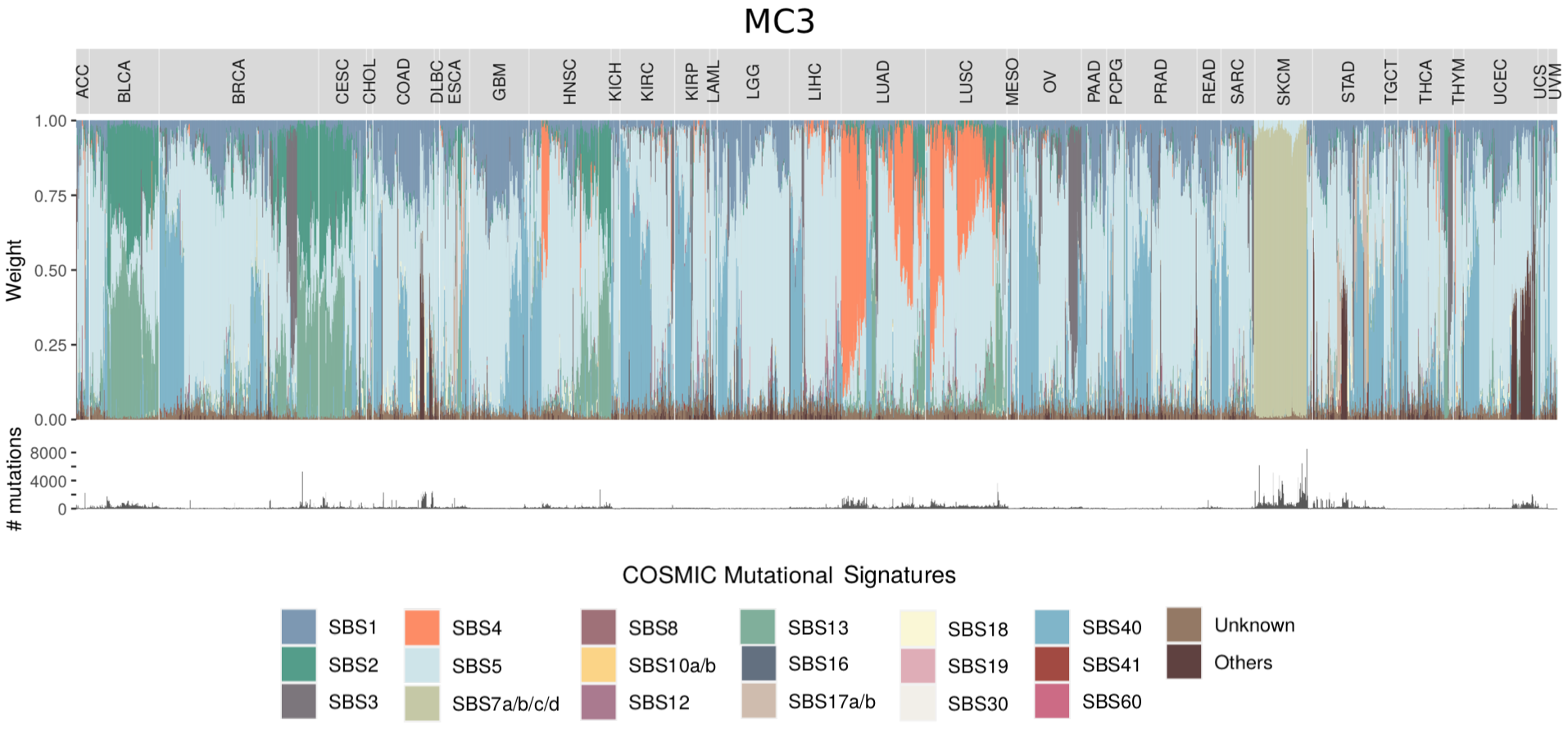Models of mutation probability

The genomic mutation rate varies across regions, epigenetic states and DNA sequence composition. We work on probabilistic models that describe the mutation rate variability in both cancer tumors and the germline. These models can be used to characterize mutational processes and as null models in the quantitative inference of selection.
Cancer evolution

Cancer is a genetic disease that allows us to learn about the malignant transformation of initially healthy cells by analyzing tumor DNA sequences. The frequency of the mutations present in the DNA of tumor cell populations can be described using the framework of population genetics. This way, we aim to identify the somatic mutations that took place during tumorigenesis, elucidate how and why they happened, and quantify their impact on tumor growth.
Human evolution

DNA sequencing data from the phylogenetic tree and human populations provide insights into the evolutionary dynamics governing ours and other species. By analyzing mutations in both types of data sets, we can infer mutational spectra and the distribution of fitness effects of individual mutations. Ultimately, this may allow us to prioritize genes according to their relevance for health and disease.


